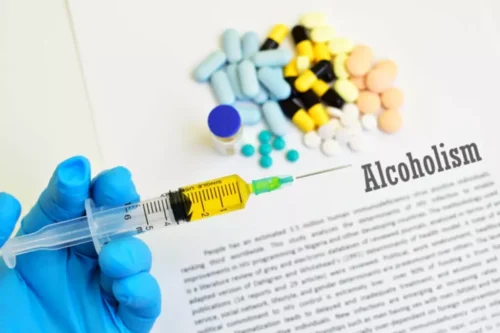
During a practicum, they are expected to learn, internalize, and apply the responsibilities and characteristics of professional counselors. While some graduate programs take up to two years to complete, some online programs allow students to pursue an accelerated path so they can graduate sooner. Regardless of the timeline, students will have more opportunities to engage in counseling work and learn how to apply their knowledge in real time.
Step 2: Earn a Master of Arts in Counseling, Specialty: Addiction Counseling
They will explore the most efficient and effective ways to support their clients on their recovery journey, making transformation and long-term sobriety possible. They can either treat their clients individually or in groups and even partner with other health professionals to ensure the best care and recovery process for the client. Counselors can work in residential care facilities, hospitals, schools, or private clinics, depending on the types of clients that they see. Psychological, biological, social, and physiological factors might all play a role in whether or not a person comes to abuse drugs or alcohol. To take the first step on your path to a career in substance abuse counseling, visit National University’s psychology page for more information about courses and requirements. Substance abuse, behavioral disorder, and mental health counselors earned an average annual wage of $53,490 in the U.S. as of 2021, according to the Bureau of Labor Statistics.
Learn around your schedule
If 30 of your prior learning credits ($330/credit) are accepted toward your bachelor’s degree. These classes will give you the knowledge needed to position yourself for success in the human services field. To demonstrate your newly gained skills, you’ll complete a capstone course at the program’s end that applies these learnings to the real world. Addiction counselors also counsel friends substance abuse counseling and relatives of people living with addiction. Counseling sessions help friends and family members understand their loved one’s condition and how to provide support at home. In this article, we’ll explore everything you need to know about becoming an addiction counselor, including what you’ll do in this role, how to become one, and what the projected career outlook looks like.
What Qualifications Does A Substance Abuse Counselor Have?
BLS data shows that the median annual wage for substance abuse, behavioral disorder, and mental health counselors was $48,520 as of May 2021. The lowest 10 percent of counselors reported earning around $30,870, while the highest 10 percent earned more than $77,980. It is important to note that addictions counselor salaries can vary by industry.
- The job outlook for substance abuse counselors is expected to grow 23% from 2020 to 2030, which is faster than the average for other occupations.
- Aspiring counselors must complete a practicum of a set number of hours and fulfill all licensure and certification requirements before they can work one-on-one with clients.
- Substance abuse can affect your mental and physical health, your relationships, your performance at school or work, and your ability to take care of yourself and keep yourself safe.
What Is a Substance Abuse Counselor?
- Substance abuse counselors work with individuals and groups to provide counseling, education, and support to those struggling with substance use disorders.
- SNHU is accredited by the regional accreditor New England Commission of Higher Education (NECHE), which advocates for institutional improvement and public assurance of quality.
- Before beginning any type of counseling or treatment, substance abuse and addictions counselors must be certain that their clients are sincere in their desire to break their patterns and discontinue recurrences of substance abuse.
- Being familiar with substance abuse counselor requirements by state can help eliminate licensing issues later.
For more information on each state’s specific criteria for substance abuse counselors, visit the National Board for Certified Counselors. Addiction happens when an individual becomes overly dependent on potentially harmful substances, such as alcohol or drugs. Addictions counselors, previously referred to as substance abuse counselors, are trained and equipped to treat patients seeking recovery from substance addictions. The Substance Abuse and Mental Health Services Administration (SAMHSA) aims to reduce the impact of substance misabuse and mental illness on communities across the nation. SAMHSA encourages interested individuals to become counselors to improve behavioral health and improve the lives of people living with and in recovery of substance use disorders.
Addiction Counselor Salary

Additionally, some substance abuse and addictions counselors might opt to start their own private clinics. Addiction counselors also lead therapy sessions for people with substance use disorders. These plans may involve inpatient or outpatient care, psychotherapies such as cognitive behavioral therapy (CBT), mental health counseling services, and support groups. If you’re seeking substance abuse counseling services or want to find out more about treatment at The Recovery Village, help is available. Substance abuse counselors with higher levels of education and training can work more independently and provide more services to their clients.

They endeavor to understand the underlying causes of addiction and employ various strategies to address the many factors contributing to substance use disorders. Addiction is a complex and challenging issue that affects countless individuals and their loved ones. Fortunately, there are professionals who specialize in helping individuals overcome substance abuse problems and achieve long-term recovery. These professionals are known as addiction counselors, and they play a crucial role in the treatment and rehabilitation process.
How to Become a Substance Abuse/Addictions Counselor
If you’re experiencing challenges related to substance use, an addiction counselor can help you. While it can be overwhelming to acknowledge and seek help, it’s important that you do — and know that you’re not alone. By bringing real-world insights to the classroom, they can help position graduates for success in this vital field. If you have a passion for helping others and want to make a difference in their lives, consider becoming an addiction counselor. Interim care (meaning you need care right away but there isn’t an opening)Many treatment options have long waitlists, but can still help while you wait.
How to Become an Addictions Counselor
Substance abuse counseling is a specialized and challenging job with its own certification. According to the Substance Abuse and Mental Health Services Administration (SAMHSA), nearly 9.2 million Americans suffer from co-occurring disorders (e.g. mental health conditions) alongside a substance use disorder. Substance abuse treatment at The Recovery Village includes a dual diagnosis process to identify co-occurring disorders so that mental health counseling can be integrated accordingly. For many clients, the two diagnoses (substance abuse and mental health disorder) are deeply intertwined, requiring simultaneous treatment. Experience, education, and credentials factor into differences seen in substance abuse and mental health counseling salaries.
